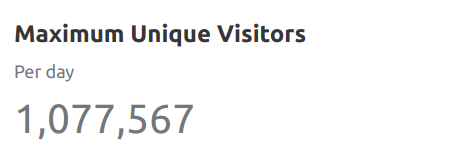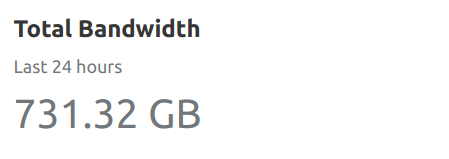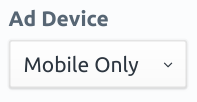Taming Dexerto.com

Dexerto.com

Traffic
ESports is popular.
Constant high traffic with peaks between 15:00 and 22:00



Initial Findings
- Regular website outages
- Mostly database related
- CraftCMS codebase
- No template caching
- 300+ queries per page request
- Plan discussed to move to full CloudFlare caching but stalled due advert implementation




Initial Findings
- Hastily applied fix using nginx reverse proxy caching
- Fixed 60s Cache TTL. No respect for cache headers
- Admin only content leaking into cache
- Desktop and mobile clients detected by user agent and cached separately

Step 1: Reduce DB Load
- Add template caching
- Target modules shared between pages
- Replace simple actions with raw php files
- No need to boot all plugins and do auth checks
- Profile and remove any slow queries
- Found a query which was performing a full table scan using 'LIKE' whenever a 404 was encountered. Avg execution time 13s 😬
{% cache globally using key "advert-1-" ~ currentSite.id ~ "-" ~ category.id ~
"-" ~ (craft.app.request.isMobileBrowser(true) ? 'mobile' : '') for 120 seconds %}Step 1: RESULTS
- DB hits per page reduced by 60%+
- Overall DB load reduced by 50%
- BUT
- After 3 days of calm the site went down again. Caused by a database backup taking several minutes and creating hundreds of database connections. Root cause was identified as Craft's cache elements table growing to 2GB.
- Truncated table, disabled Craft template caching
Step 2: Unify HTML
- Rewrite front end ad code to work across both mobile and desktop devices.
- Had to learn some of the intricacies of Google Publisher Tag in order to get this working
- Remove admin functionality from front end templates
- No longer necessary to cache mobile and desktop individually, remove this from nginx config
Step 2: Results
- Consolidated HTML output across mobile and desktop and for admin/non-admin users
- ~30% reduction in article requests hitting Craft by removing mobile specific caching
- Cache no longer being polluted with admin-only content
Step 3: Dynamic Content
- Remove regularly updated content from main page templates
- Create ajax endpoints to load these bits of content async
- Create JS to pull this content into appropriate pages immediately on page load



Step 3: Result
- Article page content can now be cached for long periods of time whilst still allowing 'trending' content to update regularly
- Cache headers can still be set for trending modules but with a much lower TTL
- Trending content modules are shared across pages. By giving it its own URL it can be cached independently reducing overall DB hits

Step 4: Cloudflare
- Set long TTL cache headers for articles
- Set short TTL cache headers for dynamic content
- Activate full page caching in CloudFlare
- Create page rules in CF for special cases:
- /admin
- /actions
{% set expiryTime = expiryTime ?? 60 %}
{% if currentUser or preventAllPageCaching %}
{% header "Cache-Control: no-store, no-cache, must-revalidate" %}
{% else %}
{% set expiry = now|date_modify('+' ~ expiryTime ~ ' seconds') %}
{% header "Cache-Control: public, max-age=60, s-maxage=" ~ expiryTime %}
{% header "Pragma: cache" %}
{% header "Expires: " ~ expiry|date('D, d M Y H:i:s', 'GMT') ~ " GMT" %}
{% endif %}Step 4: Result
- 90% of article requests are now served directly from CloudFlare's edge cache
- Dynamic content mostly served from CF but still refreshed every 60s
- Average cached TTFB ~70ms on a broadband connection
- I'm not allowed to look at GA, but I expect bounce rate has improved significantly!

Step 5: Busting
- Create a Craft plugin to bust the CF cache when an article is saved
- Only bust the article's URL and any index pages on which the article appears (to make sure title and image changes are reflected throughout)
- Rules to figure out all the URLs were somewhat complex so couldn't use the existing plugin 'upper'
Event::on(
Elements::class,
Elements::EVENT_AFTER_SAVE_ELEMENT,
function (Event $event) {
$entry = $event->element;
if ($entry->refHandle() === 'entry') {
try{
self::$plugin->cloudflareService->invalidateForEntry($entry);
}catch(\Exception $e){
Craft::$app->session->setError($e->getMessage());
}
}
}
);Step 5: Result
- Cache invalidation via CF's API takes around 10 seconds so article updates are made live pretty much immediately
- Cache busts are only applied to a small number of URLs so they don't result in big DB spikes
Step 5: Problem
- Article pages are only cache busted when the article is saved
- If content contained within the page, but not attached directly to the article is updated the cache isn't purged. E.G. Advert code which sits inline in articles
- Cache busting all articles when ad code is updated would bring down the site
- Currently OK to wait until caches naturally expire, max 1 hour
Next Steps
- Most of the remaining DB load caused by tracking view counts on articles and tags
- This is used to calculate trending articles and tags
- Pulling this functionality out to another, non-db reliant service would be a good next step. Serverless functions would probably work well for this
- Template code still needs cleaning up to reduce the number of database queries generated when a page cache expires
- This will require a significant refactor and will need to carefully maintain existing business logic
THanks!
Q's?
@mattgrayisok